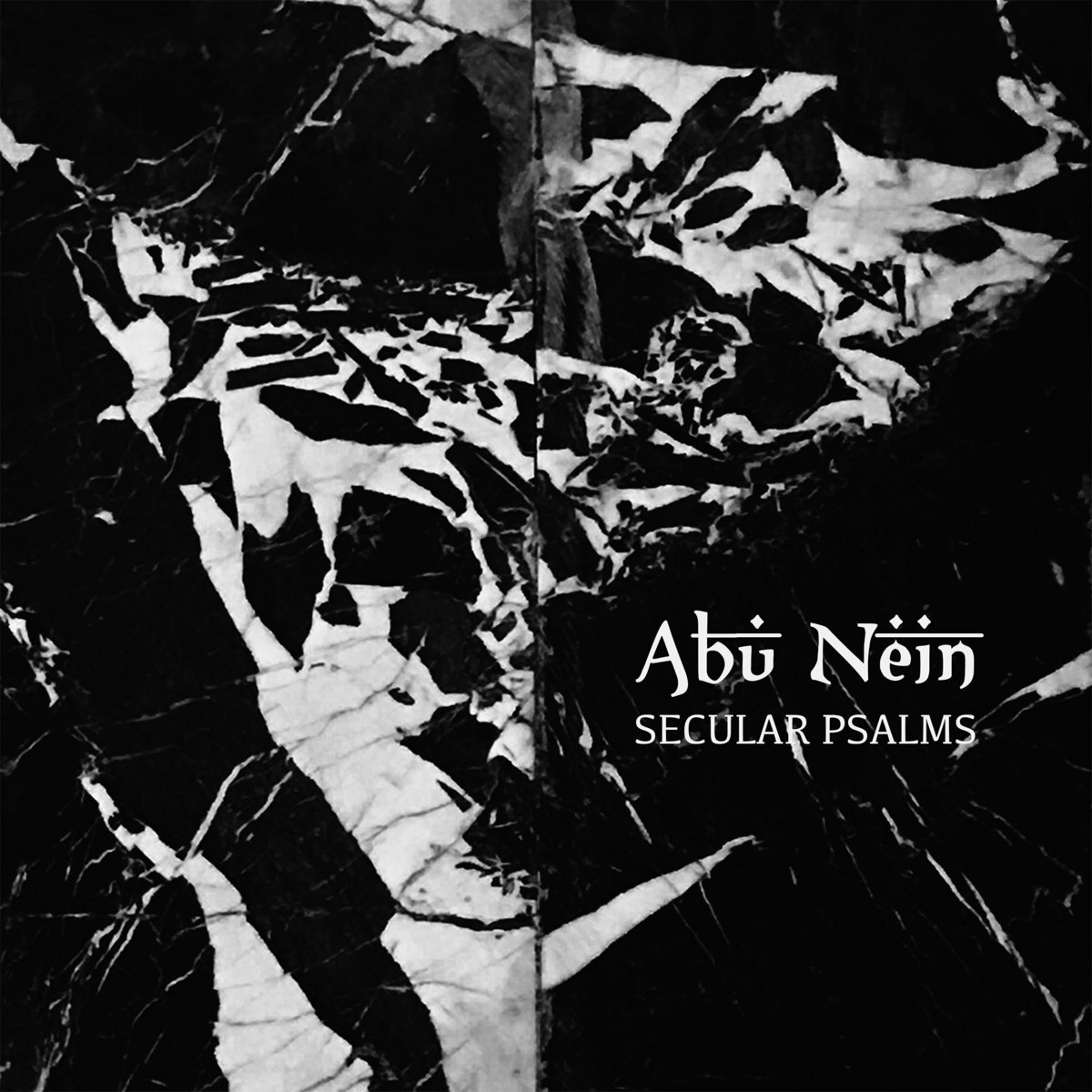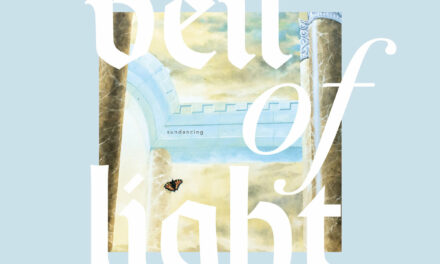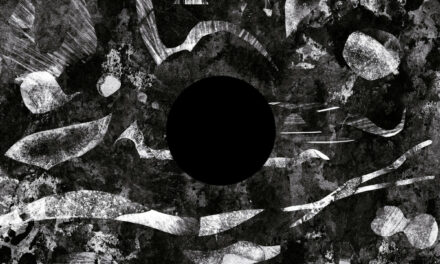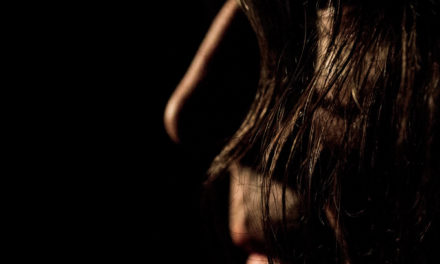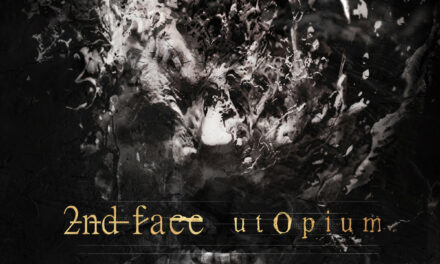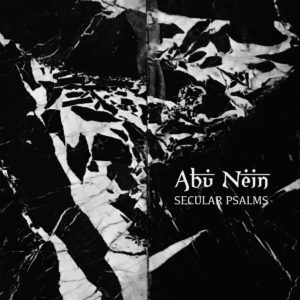
ABU NEIN
Secular Psalms
Progress Productions
Swedish trio ABU NEIN work a classic vision of European darkwave on their debut LP Secular Psalms, made up of tracks originally released on 2019’s I Will Rise EP and some new songs. All the hallmarks of the sound are here in full effect: sombre female vocals, straightforward drum programming, twangy guitars, brittle synth leads and muted pads are all put in the service of tastefully minimal songs. It’s all quite measured and reserved, and that’s both good and bad; ABU NEIN forgo big emotional moves and climaxes for steadiness and poise.
ABU NEIN’s constancy is expressed right at the outset of the record with track 1 side 1 pace-setter “Dying Into a Dance”, where a simple pattern of kicks and snares and a bubbling 16th note synth bassline propels vocalist Erica Li Lundqvist’s magisterial voice alongside uncomplicated guitar lines that serve as rhythmic accompaniment. This is ABU NEIN at their best, grasping on the essential appeal of a song and then doing their best to present it without excessive ornamentation. Follow-up “Love in Vein” swaps in electric bass and throws in some monotone french vocal punch-ins for flavour, but never loses sight of the simple melody that carries the tune. That spartan mood is so pervasive that even mild deviations stand out, as on the synthpop and electro excursions “Chamber” and “Sin”. Both are modest style exercises when taken in isolation, but seem like massive departures from the uniformity of their surroundings during an album listen.
It’s hard then to call the evenness of Secular Psalms a problem: the record’s dedication to consonance is a feature, not a bug. Still, once you settle into the groove it becomes difficult to get invested in individual songs, in spite of any specific merit they may possess. “I Will Rise” has the makings of a distinctive dancefloor filler in its ghostly pads and guitar hook, but seems content to let those elements sit in relative stasis with the rest of the track’s elements. Similarly “God in Me” has a bit of the sinister in the the bassline, but the arrangement pulls it back so that it never breaks from the album’s established form.
It might be unfair to dock points from ABU NEIN for their consistency in disposition and presentation, but it’s hard to deny how it impacts the listening experience. I’m not convinced that the album’s early standouts are especially better than the album’s later tracks – it might just be that by the time the final third of the record gets underway I’ve become accustomed to the timbre of the proceedings and have a harder time focusing on individual moments. Still, this mode of darkwave is evergreen specifically because of its steadfastness, and ABU NEIN deliver on it right down the pipe. For fans of of the style, the record offers some definite pleasures.

